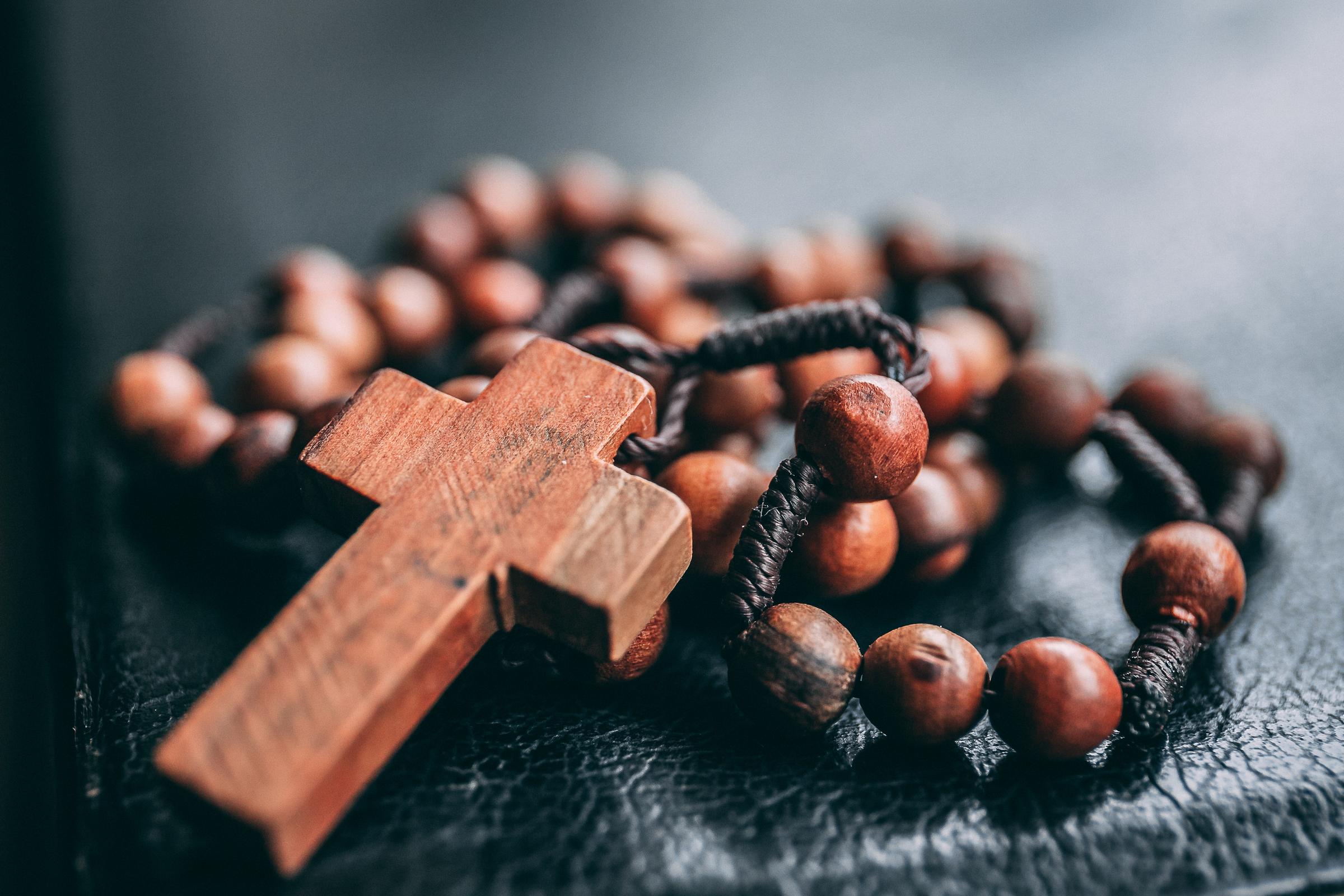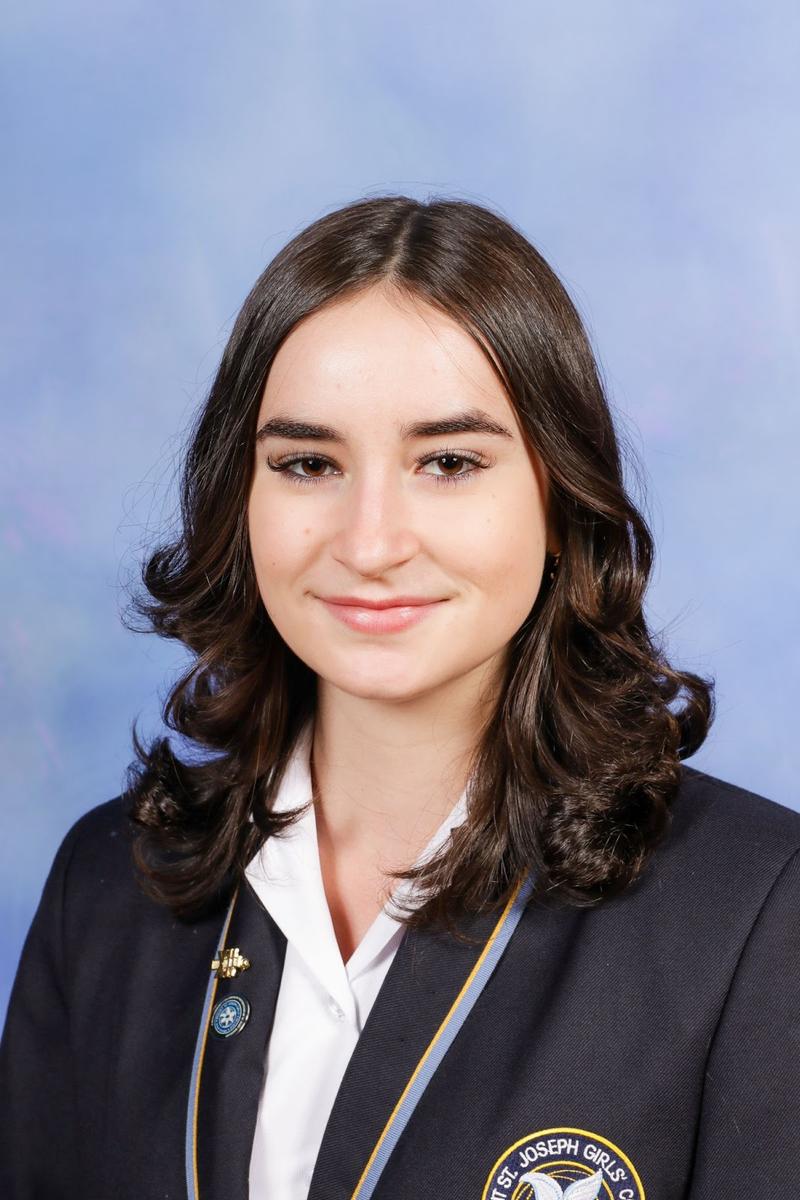Religious Education

Each student is required to choose a Religious Education subject and can choose from a range of VCE and a school based unit in Year 12.
Promotion to consecutive years is dependent upon successful completion of the Religious Education program.
| Religious Education Pathways | |
Year 11 | Year 12 |
| Religion & Society (Units 1 and 2) | *Religion & Society (Units 3 and 4) |
| Texts & Traditions (Units 1 and 2) | *Texts & Traditions (Units 3 and 4) |
| Religion & Society (Unit 2) Whole year | Year 12 Religious Education (School Based) |
| Texts & Traditions (Unit 1) Whole year | |
*Please note, if a student plans to study Religion & Society Units 3 & 4 or Texts & Traditions Units 3 & 4 in Year 12 it is recommended, although not mandatory, they study Units 1 & 2 in Year 11.
Year 11
In Year 11 students may choose the following VCE subjects at one unit per semester:
- Religion & Society Unit 1 & 2 (No prerequisites)
- Texts & Traditions Unit 1 & 2 (No prerequisites)
- Religion & Society Unit 3 & 4 (with approval)
- Texts & Traditions Unit 3 & 4 (with approval)
Alternatively they may choose the following VCE subjects at one unit for the school year:
- Religion & Society (Unit 2)
- Texts & Traditions (Unit 1)
Year 12
In Year 12 students may choose the following VCE subjects at one unit per semester:
- Religion & Society Units 3 & 4
- Texts & Traditions Units 3 & 4
Alternatively
In Year 12 students not doing a VCE RE are required to complete the Year 12 Religious Education School Based program
Religion & Society
The beliefs, practices, principles and codes of religions provide ways in which individuals can answer questions about the meaning and purpose of life. In VCE Religion and Society, religion is defined as a community organised around beliefs related to ultimate reality and the consequent beliefs, practices, principles and codes for behaviour. Adherence to particular beliefs, practices, principles and codes can form an important part of individual identity. They can determine membership of the religion and the transmission of meaning, both individual and collective, from generation to generation. Within each religious tradition, groups and individuals exhibit diversity of commitment and belief; some people do not identify with the generalised portrayal of their religious tradition, whereas others become strict adherents.
Watch the video:
Subject Entry Information | Complementary Subjects | Types of Assessment |
|
|
|
Grace Fehring- I originally chose this subject in year 11 because I liked Religion in Year 10. The skills I needed in Religios Education really complemented my skills in English and Humanities. This is not just the study of the Catholic religion, and other world religions, but it also explores areas of ethics in the world and morality. Memorising historical information for exam situations is very helpful. I would definitely suggest giving religious Studies a go in VCE, even though you might not have previously considered studying religion in VCE. We do a lot of class discussions, and each lesson is different in terms of the work we do, such as questions, worksheets, mind maps, reading, watching videos etc.
Religion & Society Unit 1: The Role of Religion in Society
In this unit students explore the spiritual origins of religion and understand its role in the development of society, identifying the nature and purpose of religion over time. They investigate religion, including the totality of phenomena to which the term ‘religion’ refers, and acknowledge religion’s contribution to the development of human society. They also focus on the role of spiritualities, religious traditions and religious denominations in shaping personal and group identity over time. Students examine how individuals, groups and new ideas have affected and continue to affect spiritualities, religious traditions and religious denominations. The unit provides an opportunity for students to understand the often complex relationships that exist between individuals, groups, new ideas, truth narratives, spiritualities and religious traditions broadly and in the Australian society in which they live.
Religion & Society Unit 2: Religion and Ethics
How do we know what is good? How do we make decisions in situations where it is unclear what is good or not good? Do we accept what society defines as good? Do we do what feels right? Or do we rely on a definition of what is good from a spirituality, religious tradition or religious denomination? What are the principles that guide decision-making? Ethics is concerned with discovering the perspectives that guide practical moral judgement. Studying ethics involves identifying the arguments and analysing the reasoning, and any other influences, behind these perspectives and moral judgments. An important influence on ethical perspective is the method of ethical decision-making, made up of concepts, principles and theories.
Religion & Society Unit 3: The Search for Meaning
Over time and across cultures humanity has sought to understand the why and how of existence. In this quest for meaning humans have consistently posed big questions of life such as: Where did we come from? Is there someone or something greater than us – an ultimate reality? What is the purpose of our existence? How should we live? Is there anything beyond death? In response to this search for meaning, various spiritual, religious, philosophical, scientific and ideological worldviews have been developed. Religion has developed answers in the form of a truth narrative: various beliefs and other aspects that have offered ways of establishing meaning, not only for human existence but also for all that exists. The aspects of religion also attempt to express and explain the nature of relationships between humans individually and collectively, between humans and ultimate reality and between humans and the rest of the natural world.
Religion & Society Unit 4: Religion, Challenge and Change
This unit focuses on the interaction over time of religious traditions and religious denominations and the societies of which they are a part. For a large part of human history religion has been drawn on as a truth narrative, offering a means for finding answers to the big questions of life. Religious traditions and religious denominations are in a dynamic process of engagement and negotiation with members individually and collectively, as well as with other key institutions in wider society associated with power, authority and credibility. Religious traditions and religious denominations are living institutions that interact with society and can likewise be influenced by society. They can stimulate and support society, acting as levers for change themselves and embracing or resisting forces for change within society.
Units 3 and 4 Assessment:
Percentage contributions to the study score in VCE Religion and Society for Units 3 and 4 are as follows:
- Unit 3 School-assessed Coursework: 25%
- Unit 4 School-assessed Coursework: 25%
- End-of-year examination: 50%
Texts & Traditions
Subject Entry Information | Complementary Subjects | Types of Assessment |
|---|---|---|
|
|
|
Texts & Traditions Unit 1: Texts in Traditions
In this unit students examine the place of texts and their literary forms within a religious tradition. Story-telling is one of the major literary forms in religious traditions; other forms include law, prophecy, sacred songs, reflection and instruction. Students explore the importance of texts at the source of a tradition and how their meaning for the earlier and continuing tradition might be found and described.
Texts & Traditions Unit 2: Texts in Society
In this unit students study texts as a means of investigating social attitudes on issues such as justice, care for the environment, racism and gender roles. Students consider the social context within which the texts were produced, the conditions under which they are currently read, the reasons for reading them, and the kinds of authority attributed to them by traditions and society in general. They also look at the ways in which the texts shape, and are shaped by, the content of the message contained in them.
Texts & Traditions Unit 3: Texts and the Early Tradition
In this unit students explore the society and culture from which the tradition being studied was formed. They seek an understanding of the historical background that lent shape and content to the texts themselves. Students develop an understanding of how the chosen set text is a response to particular social, cultural, religious, political and historical needs and events.
Texts & Traditions Unit 4: Texts and their Teachings
Some texts are regarded as essential for the continuation of a tradition because they function as a means of communicating teachings or understandings about the relationship between the human and the transcendent. These understandings are often expressed through ideas, beliefs or themes in the particular texts. In this unit students study a significant idea, belief or theme contained in the set text, and consider the interpretation of the text in the light of the idea, belief or theme.
Units 3 and 4 Assessment:
Percentage contributions to the study score in VCE Text and Traditions for Units 3 and 4 are as follows:
- Unit 3 School-assessed Coursework: 25%
- Unit 4 School-assessed Coursework: 25%
- End-of-year examination: 50%
Year 12 Religious Education (School Based)
Subject Entry Information | Complementary Subjects | Types of Assessment |
|---|---|---|
|
|
|
This program focuses on religion through the lens of different creative forms, such as Art, Music and Film. The main focus is on the students' home tradition Catholicism in conjunction with other world religions. Students will explore the ways in which adherents express and celebrate core beliefs, ideas and teachings. They will recognise and express their knowledge and understanding of ways in which their experiences are represented through these creative forms.
